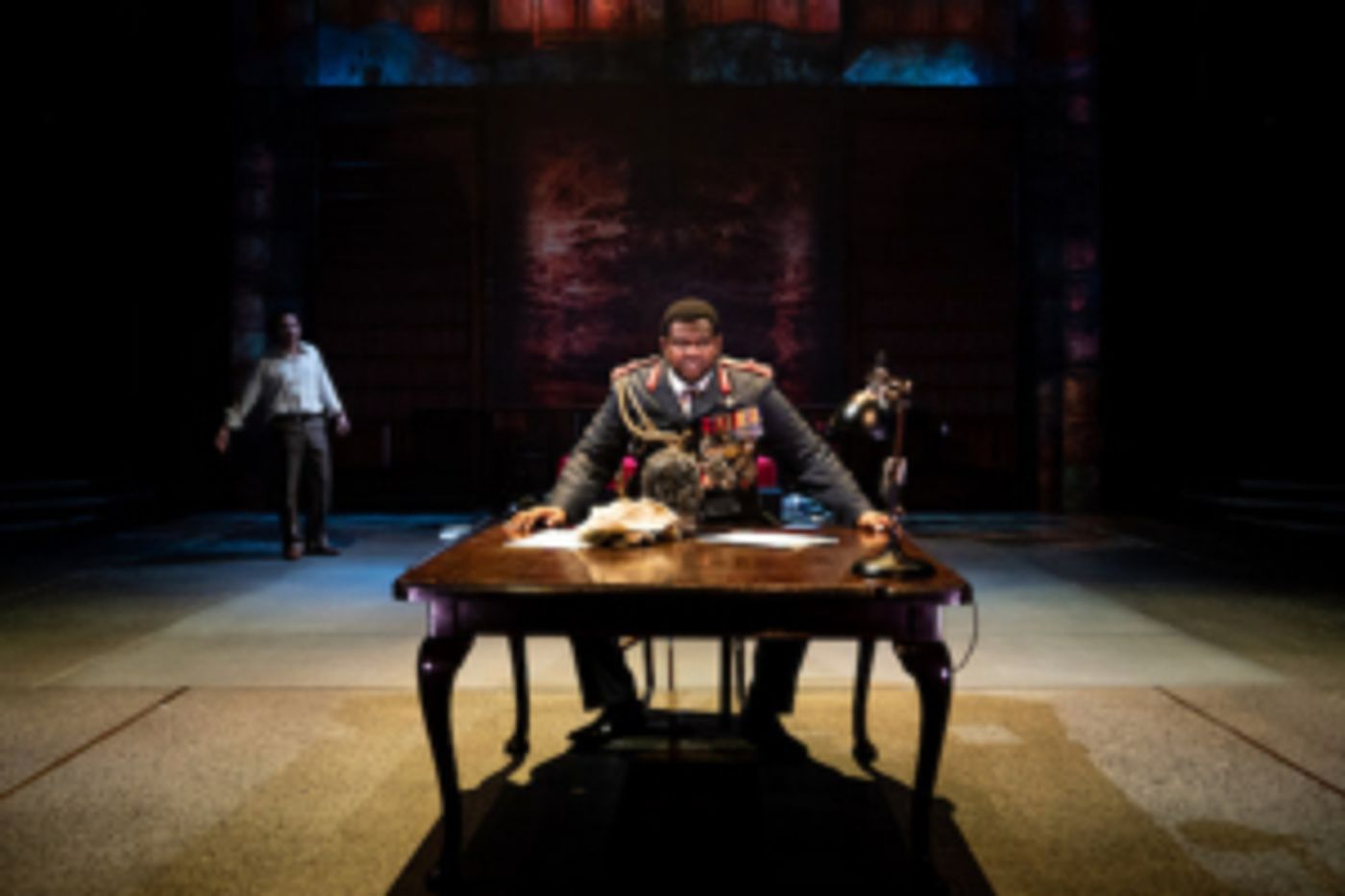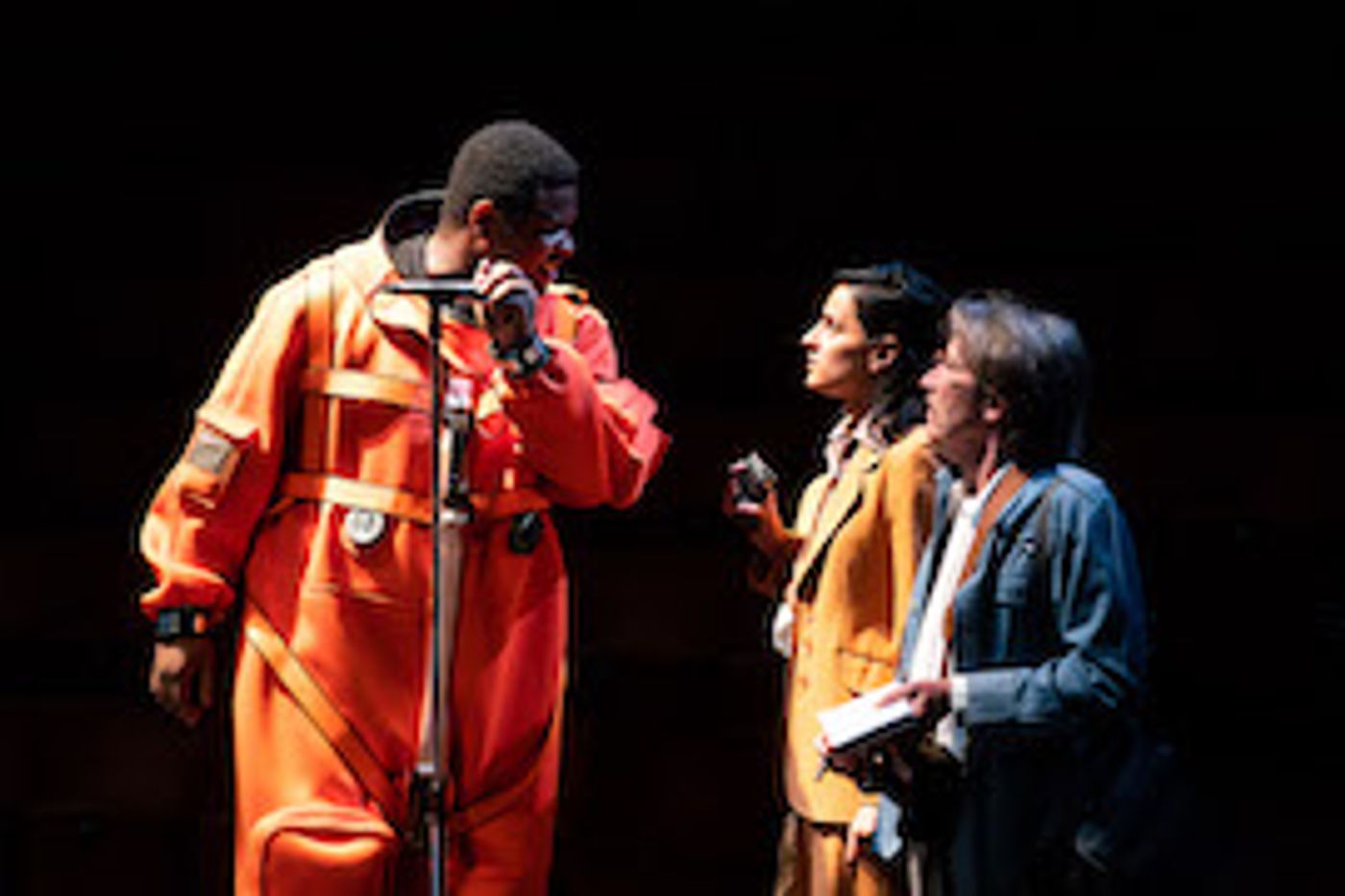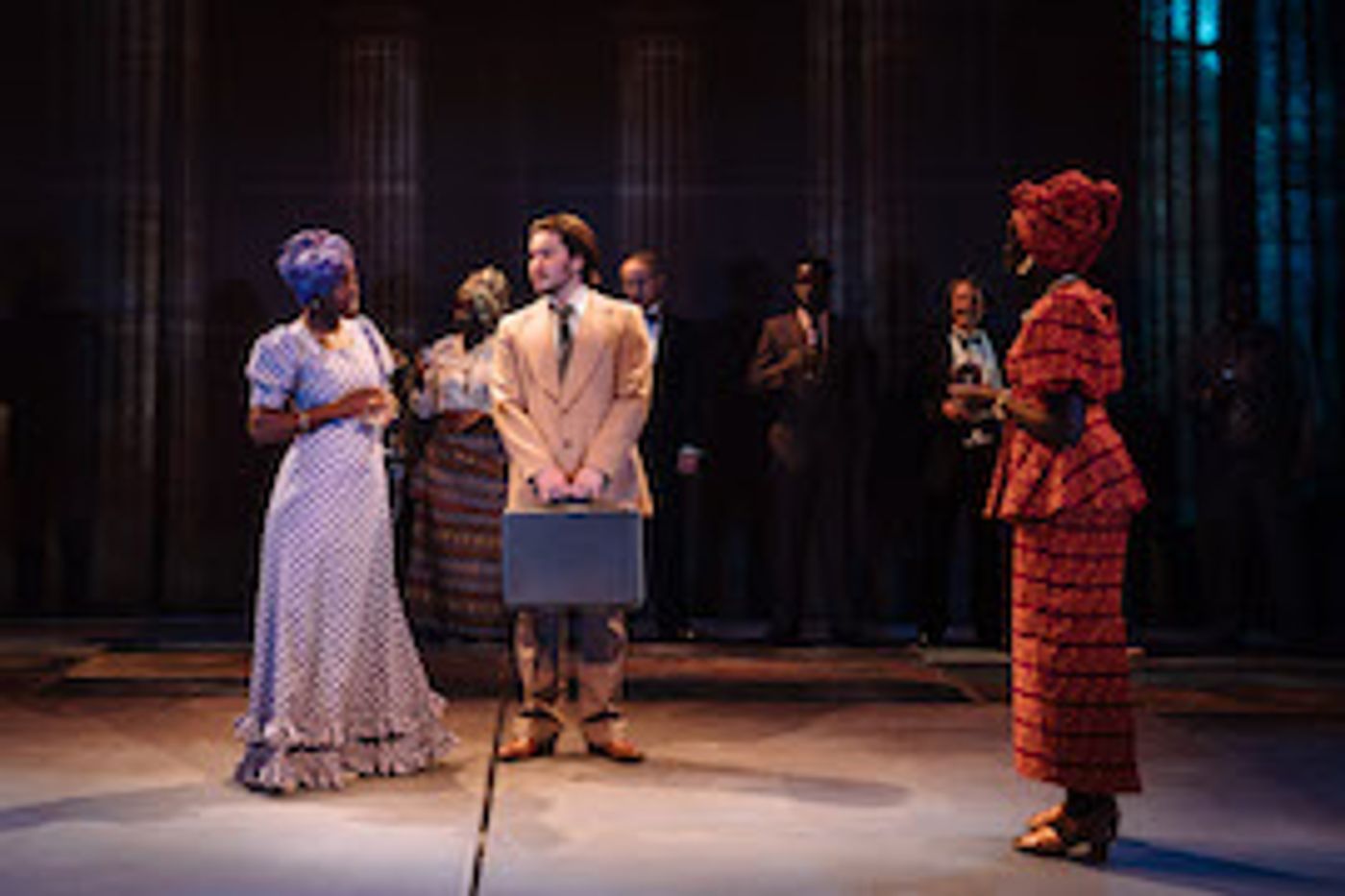Guest Blog: Playwright Steve Waters On THE LAST KING OF SCOTLAND

at Sheffield Crucible
When I was first approached by Giles Foden to adapt his 1998 novel for the stage, I was unsure how to respond. I'd seen Kevin MacDonald's fine movie version in 2006 and wondered what a theatrical version could add to it. So I went back to Giles's novel and found myself gripped by his account of Ugandan history and the complexity of Idi Amin Dada, its nightmarishly charismatic President from 1971 to 1979.
Giles constructed Nicholas Garrigan, Amin's physician, out of a number of real prototypes, ranging from rogue diplomats to mercenaries. What gripped me from the outset was the core psychological drama exploring friendship, charisma and denial in the face of atrocity.
I've long been interested in stories that lever open recorded fact by means of fiction; one of my first plays was World Music, an exploration of the European response to the Rwandan genocide, which had its debut in Sheffield in 2003 and echoed Foden's concerns. I sensed in the novel an epic play waiting to be released, dramatising the complicity of Britain in a reign of slaughter that claimed nigh on half a million lives. But most of all, in the age of Trump, Modi, Bolsonaro and, dare I say it, Boris Johnson, there was a newly urgent context for a story that anatomises the politics of populism.
Yes, it's an outrageous comparison - none of our contemporary authoritarians have blood on their hands (as yet); but Amin's rule has an eerie resonance for today's politics, particularly in the way he relentlessly and shrewdly played to the gallery.

at Sheffield Crucible
Working closely with my brilliant director Gbolahan Obisesan, I constructed a choric counterpoint to the main tale as we see Idi's constructed in the glare of the world's media - the reluctant military outsider forced into power (Modi, Sisi), the economic nationalist expelling a vulnerable population (Trump, Modi), the pan-African strategist building anti-western links with Colonel Gaddaffi (Putin, Xi Jinping).
There is a direct line from BoJo's tousled hair and crass jokes to Amin's flouting of diplomatic norms, from Trump's tweets to Amin's grotesquely funny telegrams to world leaders. Twenty years ago he might have felt to be an African phenomenon, a product of what in his book Paul Kenyon calls Dictatorland - these days, we see his successors right across the world.
Yet another motive for this adaptation was for the chance to shed light on the real people who suffered at Amin's hands, marginalised in the film. Take his wives, Kay and Malyam - recent research has revealed them to be real players in the politics of the realm as well as brutally victimised foils to his toxic masculinity. Or Peter Mbalu-Musaka, the doctor whose death has never been properly explained, who embodies the optimism of the post-colonial moment in Uganda whatever his final fate.
Unlike a novel, a play releases its characters from the viewpoint of the narrator. Whilst the plot's structured around Nicholas's experiences, this version permits parallel stories and voices, things the audience will notice that he misses.
To achieve any of this I felt I had to visit Uganda for myself, to walk in the footsteps of the novel and in the shadow of Amin. The first shock was seeing a country that, unlike South Africa, barely acknowledges the terrible traumatic events of his regime, let alone his cruel successor (and predecessor) Milton Obote.

at Sheffield Crucible
But, like Nicholas, I sensed how you could be seduced by a place of such profound beauty, despite its grotesque polarities of wealth. Staying on Lake Victoria, walking the streets of Kampala, talking to Ugandans of a myriad of tribal backgrounds, I found myself moved by this turbulent nation shaking itself free from its nightmarish past. Could my play speak to that tragic predicament?
But perhaps above all else, the play serves as a pretext to assemble an astonishing company of actors whose experiences speak to the action. Our wonderful cast is a model of diversity, with Ugandan, Nigerian, South Sudanese, Kenyan, South African, Kashmiri and of course British - not to mention Scottish! - heritages.
The company alone serves as a riposte to Amin's brutal nationalist project and is a living vindication of what British theatre has become and should continue to be, whatever Brexit brings. Likewise, Sheffield embodies these internationalist values, and the Crucible, one of my favourite venues in the land, has the grandeur and intimacy required to tell this terrible and thrilling tale.
If watching The Last King of Scotland is half as exciting as writing it, the audience is in for a hell of a night.
The Last King of Scotland at Sheffield Crucible until 19 October
Photo credit: Helen Murray
Videos

